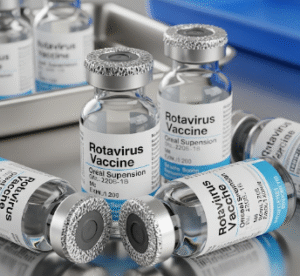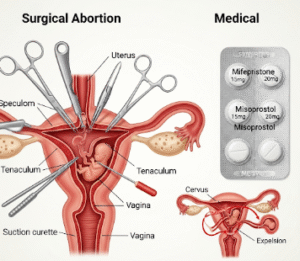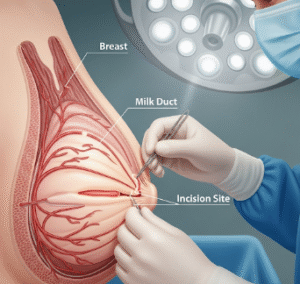Overview
Nosebleeds during pregnancy, medically called epistaxis, are a relatively common symptom, especially in the second and third trimesters. Hormonal changes, increased blood volume, and heightened nasal blood vessel sensitivity can lead to frequent or spontaneous bleeding from the nose. While usually benign, persistent or severe nosebleeds should be evaluated to rule out underlying medical issues.
In Korea, obstetricians and ENT specialists carefully monitor nosebleeds during pregnancy to ensure maternal safety and fetal well-being, providing both preventive advice and treatment options.
Key Facts
➤ Nosebleeds are common in pregnancy, affecting up to 20–30% of women.
➤ Most nosebleeds are mild and self-limiting, originating from the anterior part of the nasal septum.
➤ They are often caused by hormonal changes, increased blood volume, or nasal dryness.
➤ Rarely, nosebleeds may indicate high blood pressure, clotting disorders, or anemia.
➤ In Korea, non-invasive management and monitoring are preferred unless severe.
What is Nosebleeds During Pregnancy?
A nosebleed during pregnancy occurs when the fragile blood vessels inside the nose rupture, causing bleeding.
➔ Contributing factors include:
- Estrogen-induced nasal congestion and vascular fragility.
- Increased blood volume putting pressure on small vessels.
- Environmental triggers like dry air, allergies, or trauma.
Bleeding is usually from the anterior septum, but rarely can occur in the posterior nasal cavity, which is more serious and requires urgent care.
Symptoms Related to Nosebleeds in Pregnancy
➤ Sudden bleeding from one or both nostrils.
➤ Dripping or flowing blood, sometimes accompanied by clots.
➤ Nasal congestion or dryness preceding the bleed.
➤ Mild dizziness or lightheadedness if bleeding is significant.
➤ Rarely, posterior bleeding may cause more severe blood loss.
Causes / Possible Causes
Nosebleeds in pregnancy are usually physiological, but can sometimes have pathological causes:
Physiological Causes
➤ Hormonal changes – estrogen and progesterone increase nasal blood vessel fragility.
➤ Increased blood volume – common in second and third trimesters.
➤ Nasal congestion or allergies – swelling of nasal mucosa increases susceptibility.
➤ Dry air or irritation – due to heaters, air conditioning, or frequent nose blowing.
Pathological Causes
➤ Hypertension – especially pregnancy-related high blood pressure (preeclampsia).
➤ Clotting disorders – hemophilia, thrombocytopenia, or anticoagulant medications.
➤ Trauma – minor injury from nose picking or accidental bumping.
➤ Infections – sinusitis or upper respiratory infections increasing vessel fragility.
Risk Factors
➤ Second and third trimester of pregnancy.
➤ History of frequent nosebleeds or nasal trauma.
➤ High blood pressure or preeclampsia.
➤ Allergies or sinus congestion.
➤ Dry climates, heated indoor environments, or frequent nasal irritation.
Complications
Most nosebleeds are mild, but potential complications include:
➤ Significant blood loss causing dizziness or anemia.
➤ Frequent bleeding impacting daily activities and sleep.
➤ Rarely, posterior epistaxis requiring medical intervention.
➤ Underlying medical conditions such as preeclampsia may be revealed by recurrent bleeding.
➤ Emotional stress or anxiety in pregnant women due to bleeding episodes.
When Should I See My Doctor?
Seek medical attention if:
➤ Nosebleeds are frequent, heavy, or difficult to control.
➤ Associated with high blood pressure, swelling, headaches, or vision changes.
➤ Occur along with other bleeding symptoms (gums, bruising).
➤ You feel faint, dizzy, or weak during or after a nosebleed.
➤ There is concern about posterior nosebleed or underlying clotting disorder.
Care and Treatment
Lifestyle and Home Measures
➤ Sit upright and lean forward to prevent swallowing blood.
➤ Apply gentle pressure to the soft part of the nose for 10–15 minutes.
➤ Moisturize nasal passages with saline sprays or humidifiers.
➤ Avoid nose picking or blowing hard during pregnancy.
➤ Maintain hydration and healthy nasal hygiene.
Medical Treatments
➤ Topical nasal ointments to reduce dryness and irritation.
➤ Cauterization of persistent anterior bleeds by an ENT specialist if necessary.
➤ Treatment of underlying allergies or infections.
➤ Blood pressure management if hypertension is contributing.
➤ Rarely, hospitalization for severe posterior bleeding requiring intervention.
Preventive Measures
➤ Use humidifiers to maintain nasal moisture.
➤ Avoid environmental irritants such as smoke or chemical fumes.
➤ Monitor blood pressure regularly.
➤ Apply saline nasal sprays to prevent crusting and dryness.
➤ Early evaluation of recurrent or severe nosebleeds.
Treatment Options in Korea
Korean healthcare provides specialized care for pregnant women experiencing nosebleeds, including:
Diagnostic Services
➤ Detailed history and physical examination of nasal passages.
➤ Blood tests to evaluate hemoglobin, platelets, and clotting factors.
➤ Blood pressure monitoring for preeclampsia screening.
➤ ENT assessment for structural or chronic nasal issues.
Therapies and Supportive Care
➤ Saline sprays, ointments, and humidifiers to maintain nasal moisture.
➤ Cauterization or nasal packing for persistent anterior bleeding.
➤ Medication management for allergies, sinusitis, or hypertension.
➤ Education on home care techniques and lifestyle modifications.
➤ Integrated care between obstetrics and ENT specialists to ensure maternal and fetal safety.
✅ In summary: Nosebleeds during pregnancy are usually benign and related to hormonal and vascular changes, but can sometimes indicate underlying hypertension, clotting disorders, or nasal pathology. In Korea, careful monitoring, preventive care, and prompt treatment ensure symptom relief, maternal safety, and healthy pregnancy outcomes.













